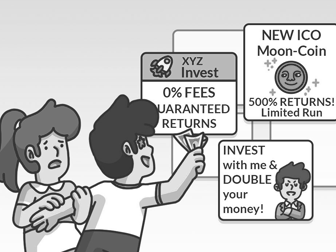Financial Planning
Is More Insurance Always A Good Thing?
Do you know what your Integrated Shield Plan and rider cover, and how much they cost?Speak to your financial advisor to review and right-size your coverage to fit your needs!This post is sponsored by Ministry of Health Singapore.
16 Oct 2025
READ MORE0


Debunking the ‘Buy More Insurance While You’re Young’ Misconception
14 Oct 2025
0

ETFs Explained: Because You Don’t Need to Be A Finance Bro To Invest
08 Oct 2025
0

Chasing The 5Cs Left Me Tired And Miserable
07 Oct 2025
0

Go Big Or Keep It Small?
03 Oct 2025
0

5 Questions To Ask Yourself Before Taking A Personal Loan
30 Sep 2025
0

I Bought My First Luxury Watch Thinking I Could Afford It, Only To End Up With Very Tight Cashflow
29 Sep 2025
0

New To Investing? Here Are Some Power Moves
24 Sep 2025
0

Tie The Knot Like A Star, Without The ‘Celebrity’ Price Tag
23 Sep 2025
0

How I’m Protecting My Money In Uncertain Times
22 Sep 2025
0

SUBSCRIBE
STAY UPDATED!
And join our community© Copyright 2025 The Simple Sum. All Rights Reserved.















